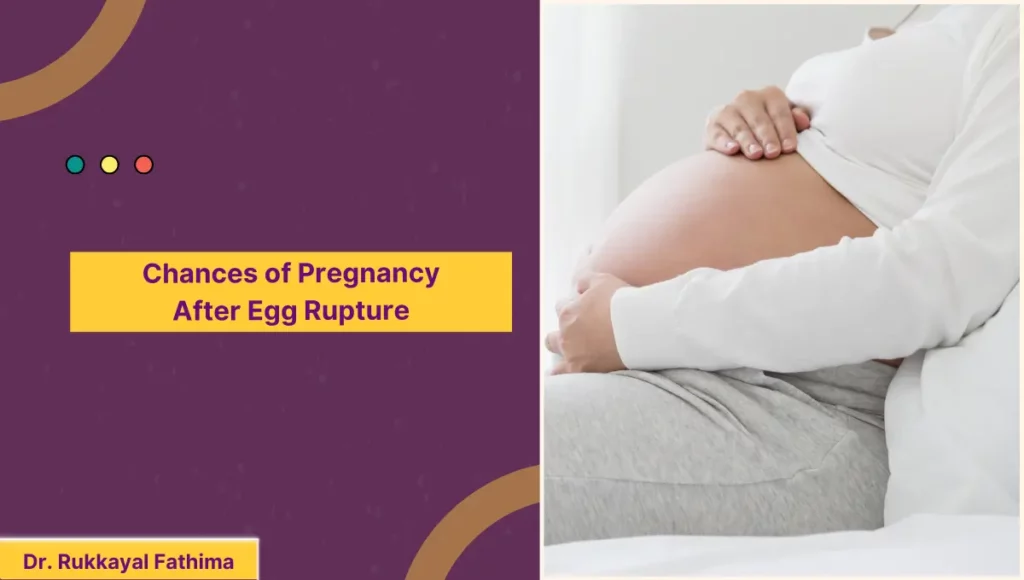Whether it is to get pregnant or to avoid pregnancy, tracking ovulation is necessary. Ovulation is the time when a woman will be the most fertile, and the chances of pregnancy are high if you have sexual intercourse during this period.
In this article, we have discussed what ovulation is and how tracking it can help you get pregnant. Continue reading to learn more.
What Are The Chances Of Pregnancy After Ovulation?
Ovulation happens when the ovarian follicles rupture and release a mature egg. This is the best time when a woman has the highest chance of pregnancy. Timing it correctly and having sexual intercourse during ovulation can increase your odds of getting pregnant.
Ovulation usually happens around the 14th day of a 28-day ovulatory cycle. This is fairly easy to track if you have a regular cycle every 28 days. Some women might have ovulation anywhere between the 11th and 21st days of their ovulatory cycle.
Doctors usually refer to these 10 days as the “Fertility Window,” the window where there is a higher chance of pregnancy. You do not need to have sex for the whole month to get pregnant. You only need to have intercourse for 6 days (5 days before ovulation and 1 day after ovulation) to increase your chances of pregnancy.
How Many Days After Ovulation Is It Possible to Get Pregnant
After ovulation, a mature egg can live in the ovaries for around 12–24 hours. Whereas sperm can live in the uterus for around 5 days, and it takes 6 hours for the sperm to reach the fallopian tubes.
If an egg is not fertilized within the 24-hour period, the egg disintegrates into the uterine lining and is expelled during your monthly periods. So, having sex for five days before ovulation or one day after ovulation increases the chances of fertilization.
It is best to have intercourse before ovulation. This ensures the sperm is present when the egg releases and can fertilize it immediately. If fertilization happens during ovulation, and the egg successfully implants in the uterine lining, you will most likely get pregnant the next day.
What Methods are Available to Track or Predict Ovulation
Are you trying to get pregnant and want to know the right time to have intercourse? Tracking your ovulation and predicting the time your egg will be released is important to ensure you don’t miss out on the opportunity.
Here are some methods you can use to track your ovulation cycle and know when you are most likely to ovulate.
Basal body temperature charting
Basal Body Temperature (BBT) is your body’s temperature when it is resting. Your BBT will be the same most of the days. But, it increases slightly when you are near ovulation. Tracking your BBT and noting the slight increase in temperature can help you predict ovulation and achieve pregnancy.
You can get your accurate BBT by noting your temperature every day after waking up. Charting it for some months can help you understand how your body temperature works during ovulation.
Ovulation predictor kits
Ovulation predictor kits are at-home test strips used to detect a rise in luteinizing hormone (LH) levels in the urine. Your LH hormone increases every month during ovulation.
Testing the LH levels in your urine every two days can help you understand whether your ovulation is nearing. Having intercourse when your LH levels are higher can increase your odds of pregnancy. You can buy these ovulation predictor kits at your nearest drugstore.
Cycle charting apps
Many apps nowadays can help track your menstrual cycle and tell you when your ovulation is nearing. These apps analyze your past periods, BBT, heart rate, and cervical fluid and determine when you will most likely have your periods.
Fertility monitors
Fertility monitors are another good way to detect ovulation. They work by measuring your BBT, breathing, heart rate, and other bodily changes that occur when you are near ovulation. Fertility monitors analyze all these data and determine when you will ovulate.
Cervical mucus method
Your cervical mucus will usually be thick, white, and dry. However, during ovulation, the cervical mucus will have a thin, clear, and slippery consistency. This is mainly to make it easier for the sperm to swim to the egg for fertilization.
Having intercourse when your cervical mucus is in this particular consistency can increase your chances of pregnancy.
Conclusion
Understanding your body and knowing when you will likely ovulate is crucial in determining the right time to have intercourse for pregnancy. Ovulation tracking works best for women with regular menstrual cycles every 28 or 32 days.
If you are someone who has irregular cycles, it is best to consult a Fertility Doctor and understand if you have any infertility problems. This can help you determine the next course of action.
A woman is considered to be ovulating regularly if she has her menstrual cycle within 21 to 35 days of her previous cycle. If you don’t have regular periods or your periods take more than 35 days every month, it means you are not ovulating regularly.
If you have tracked your ovulation and had intercourse at the right time, there is a high chance that your egg got fertilized and you are pregnant. If takes about 11 to 14 days for the egg to implant in your uterus and for the body to show pregnancy symptoms.
So, taking a pregnancy test two weeks after ovulation can tell you if you are pregnant or not.
You should realize that an egg will live only for 12–24 hours in the ovaries. Pregnancy is possible only if the egg is fertilized within this time. So, there are very low chances of pregnancy if you have sex two days after ovulation.
Here are some changes your body will undergo when it is nearing ovulation.
- Increase in Basal Body Temperature (BBT)
- Cervical mucus changes.
- Breast tenderness.
- Pelvic cramping.
- Vulval swelling.





